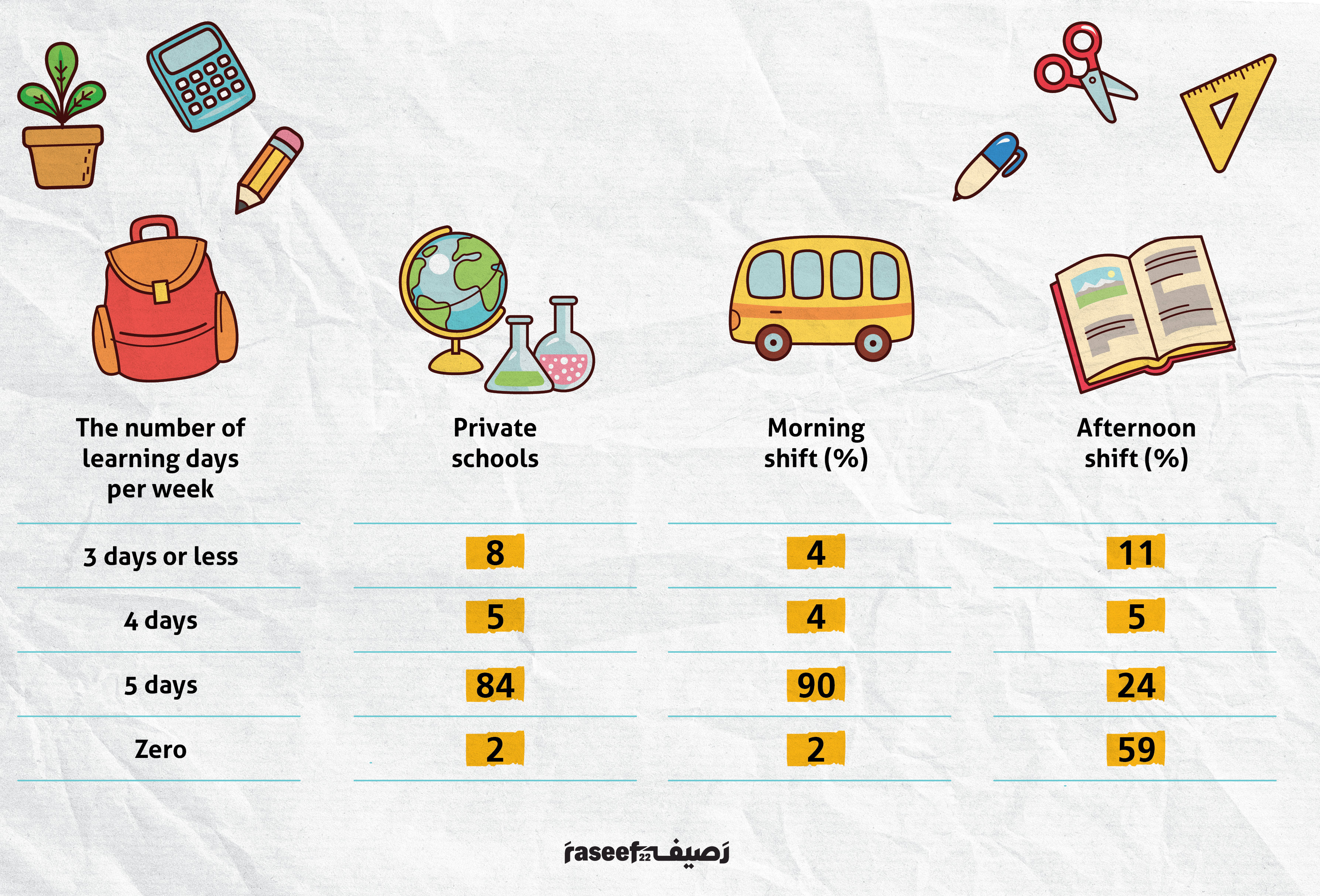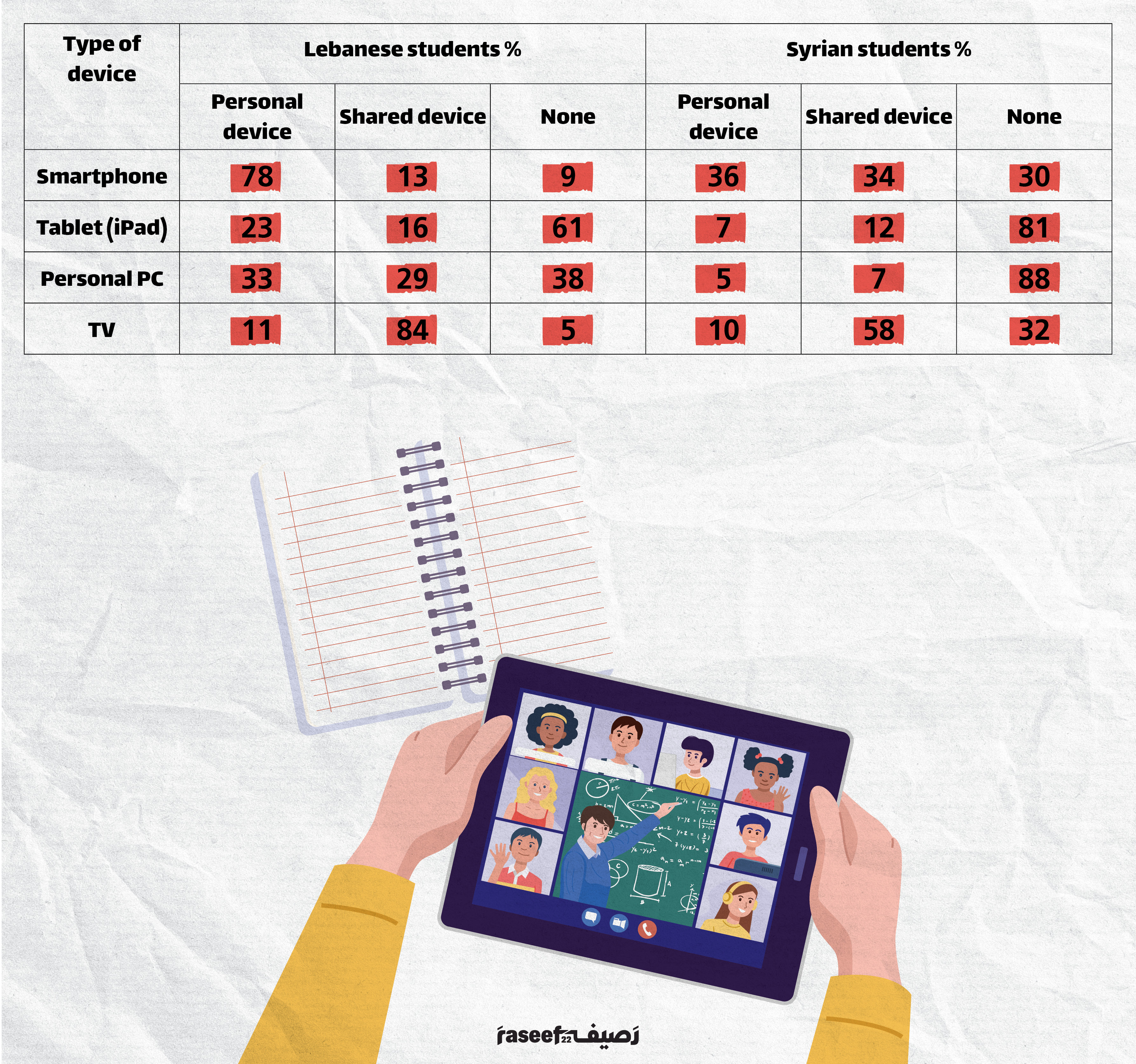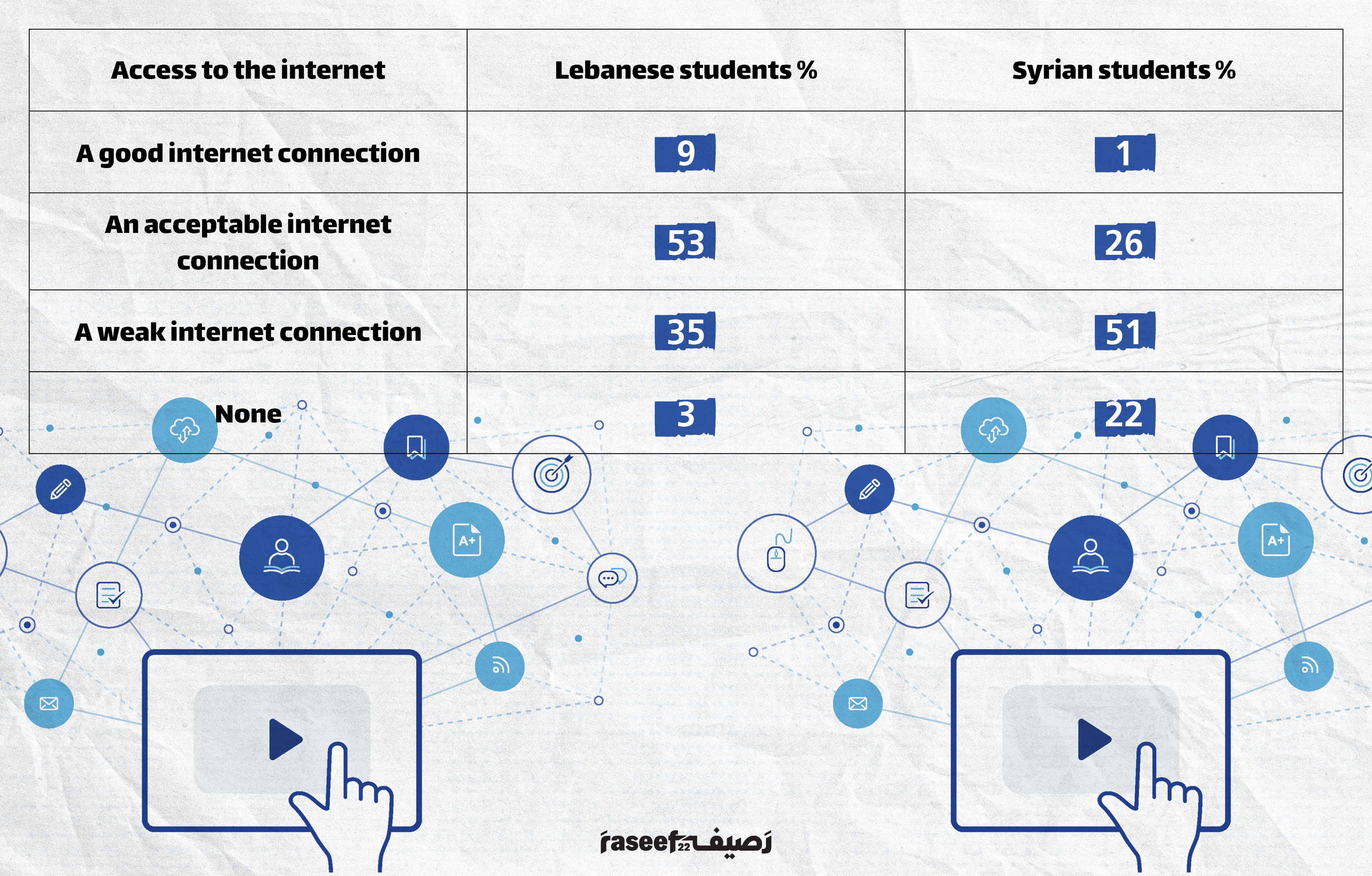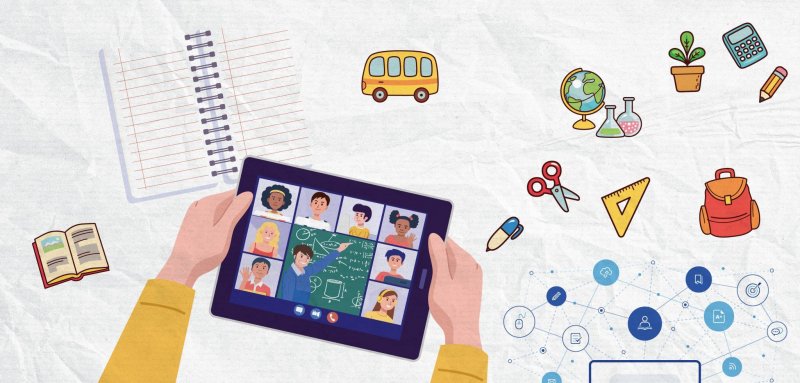The past four years in Lebanon have been marked by a series of crises that have left a lasting impact on the state of education in the country. These crises, which include the ongoing economic and financial turmoil, teacher strikes, the challenges posed by the COVID-19 pandemic, and the transition to remote learning, have collectively strained the educational system.. But what has harmed the level and quality of education the most were the measures taken by the Ministry of Education. Unfortunately, its actions have not alleviated the negative consequences of these crises but, in fact, have exacerbated them. Here are some of the key measures taken:
1- The Ministry decided to adopt a "trimming" policy on the curriculum. This involved removing approximately half of the curriculum without adequately considering the adverse effects this would have on students, particularly those at higher educational levels.
2- Easing student advancement: To ensure a high pass rate, the Ministry implemented superficial examinations in schools, and even high schools, where students were promoted to the next grade without demonstrating full mastery of the required competencies.
3- Canceling middle school exams: The Ministry canceled middle school exams and automatically promoted all students to the secondary stage. This decision was done once under supposed concerns about the spread of COVID-19, and another time under the pretext of logistical challenges related to security forces overseeing official middle school exams.
4- Disrupting the "Assessment and Support" system incorporated in modern educational curricula, which focuses on assessing students' levels and measuring their attainment of necessary educational competencies each academic year. In case of deficiencies, the educational administration and teachers work to provide additional support before the end of the academic year to ensure the necessary educational competencies are achieved.
Accordingly, things look bleak with the decline in the quality of education in Lebanon, especially in the official educational system, further marginalizing significant segments of the country's youth, especially those most economically disadvantaged.
Strikes and reduced teaching hours
Regarding the repercussions of the two major crises and their negative impacts on the quality and level of education during the past four years (teacher strikes and remote learning), it's essential to highlight some alarming statistics.
The policies of the Education Ministry have contributed to a significant decline in the quality of education. Documented figures indicate that what students have gotten over the past 4 years is equivalent to a year and a half of actual education. How did this happen?
In addition, the teacher strikes and the reduced number of teaching hours have exacerbated the situation. As the economic and financial crisis eroded the purchasing power of teachers' salaries, they resorted to strikes to improve their living conditions during the 2021/2022 and 2022/2023 academic years. However, the Ministry of Education paid little attention to their legitimate demands and the impact of the strikes on the quality of education. Instead, it further reduced the number of teaching days.
Prior to 2016, Lebanon maintained a curriculum featuring a substantial 180 days of actual teaching, ensuring students acquired the necessary competencies within the annual syllabus. However, in 2016, curriculum revisions brought the actual teaching days down to 140.
Then, throughout the teacher strikes spanning the academic years from September 2021 to June 2023, the majority of official schools struggled to meet even half of the required school days. In response, the Ministry of Education further reduced the number of teaching days to 112 for the 2022/2023 academic year. It's crucial to underline that most official schools fell short of this objective.
Upon closer inspection, it becomes evident that the maximum number of actual teaching days achieved in the majority of morning sessions in official educational institutions ranged between 60 and 70 days. For afternoon sessions, exclusively attended by Syrian students, this number reached approximately 70 days, largely due to UNICEF's insistence on extending the academic year until mid-July 2023.
Remote learning during the COVID-19 pandemic
A study conducted by the Center for Lebanese Studies in March 2021 delved into the quality of education on a sample of students and teachers, revealed that the closure negatively affected the learning process for Lebanese students and displaced Syrian refugee students alike.
The study pinpointed three critical factors affecting the quality of education: the adoption of remote learning programs by schools, the availability of suitable communication tools, and access to the internet and electricity.
 The number of learning days per week
The number of learning days per week
In the first challenge, which revolved around the introduction of schools to remote learning programs, it was clear that most private and public schools made some efforts to develop and implement these programs, albeit with some variations. However, the situation was different for afternoon sessions, where Syrian students predominated, 59% did not receive any form of remote education during the 2020/2021 academic year.
Shifting to the second challenge, centered on the availability of appropriate communication tools for remote learning, the study revealed that 38% of Lebanese students and a striking 88% of Syrian students did not own a computer. Furthermore, 61% of Lebanese students and 81% of Syrian students lacked access to an iPad. In official schools, both in the morning and afternoon sessions, these percentages virtually reached 100%. This implied that the majority of Lebanese and Syrian students were navigating their educational journeys using unsuitable smartphones for remote learning.
 Availability of suitable means for remote learning
Availability of suitable means for remote learning
The third challenge, concerning the availability of electricity and the internet to enable continuous student understanding and participation, was virtually absent due to frequent power outages and a weak internet infrastructure. The majority of students attended their lessons using a weak or moderately acceptable internet connection at a rate that reached 88% for Lebanese students and 77% for Syrian students. Nevertheless, 3% of Lebanese students and 22% of Syrian students had no internet access.
 Availability of access to the Internet
Availability of access to the Internet
In addition to the above-mentioned challenges, it's crucial to highlight two more fundamental issues: the absence of experience in remote teaching and learning, both for teachers and students. Neither group received training in remote teaching methods, leading to a haphazard, improvised approach to education.
The final challenge relates to the learning environment. For effective education, a conducive environment free from distractions is essential, enabling teachers and students to focus, communicate, and interact with educational content. Such an environment was notably absent, particularly in small dwellings and overcrowded households, which is the housing citation of tthe majority of students in the official education system. The situation is even more critical for Syrian families residing in camps.
What does this mean?
The success of the educational process depends on two critical factors. Firstly, it involves the completion of the prescribed educational curriculum for each academic year. Secondly, it demands verification of the students' educational competencies at the end of each academic year. If these competencies are not met, students must repeat the grade because they won't be adequately prepared to advance.
Analyzing the trajectory of the education system in Lebanon since the 2019/2020 academic year reveals a series of factors negatively impacting the quantity and quality of information that Lebanese students acquire. In terms of quantity, actual teaching days fluctuated between 50% and 60% of scheduled days based on the most recent curriculum adjustments in 2016. In terms of quality, the adoption of remote learning and its associated challenges affected the quality and quantity of competencies attained by students in public schools, particularly in morning and afternoon sessions.
Students have lost the equivalent of 2.5 academic years in their studies. Who is responsible for compensating this loss? What impact has it had on a generation of students affected by these crises? And where is the Ministry of Education in this equation?
Furthermore, the repetitive disruptions in education have not only significantly but severely contributed to a stark decline in the quality of education received by students in Lebanon. This will adversely affect the students' capacity to progress to higher levels, resulting in heightened dropout rates and academic underachievement in their early educational stages. Many will be compelled to withdraw from the education system in subsequent phases.
As for those who will continue their education, they will be stratified into two categories. The first encompasses children from low and middle-income families who will grapple with the mounting educational deficit. This will detrimentally influence their educational and professional trajectories in the long run. The second category comprises children from affluent families who will seek to compensate for the deficiency through financially costly private lessons, facilitating their advancement in both their educational and career journeys.
A World Bank report indicates that educational poverty in Lebanon had reached 60% before the advent of the COVID-19 pandemic. With the failure of remote learning during the pandemic and a reduction in the actual number of teaching days over the years 2022 and 2023 to over half, it is highly probable that educational impoverishment indicators have now exceeded the 70% to 80% range.
In sum, in the best-case scenario, the academic output of the past four school years can only be equated to a year and a half of study. This implies that students have effectively lost the equivalent of two and a half academic years in their educational preparation. Who is responsible for compensating this loss? What impact has it had on a generation of students affected by these crises? What strategies will the Ministry of Education implement to prevent a recurrence of these issues during the 2023/2024 academic year? Does it have a plan to rescue a generation of Lebanese youth from the clutches of disguised illiteracy, or does it intend to eradicate the remnants of formal education?
As of today, it does not appear that there is a plan, nor any discernible efforts to formulate one.
Raseef22 is a not for profit entity. Our focus is on quality journalism. Every contribution to the NasRaseef membership goes directly towards journalism production. We stand independent, not accepting corporate sponsorships, sponsored content or political funding.
Support our mission to keep Raseef22 available to all readers by clicking here!
Interested in writing with us? Check our pitch process here!





